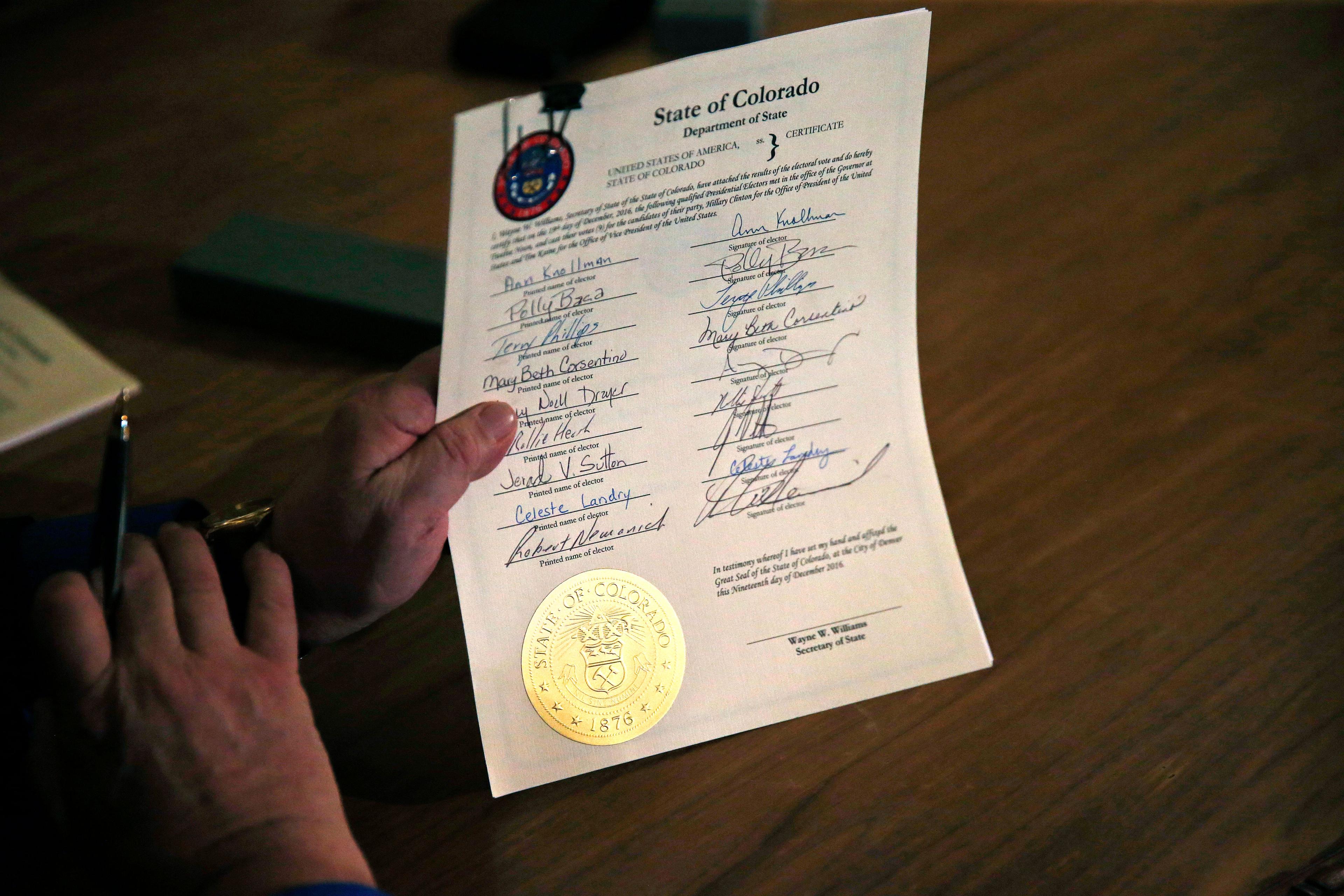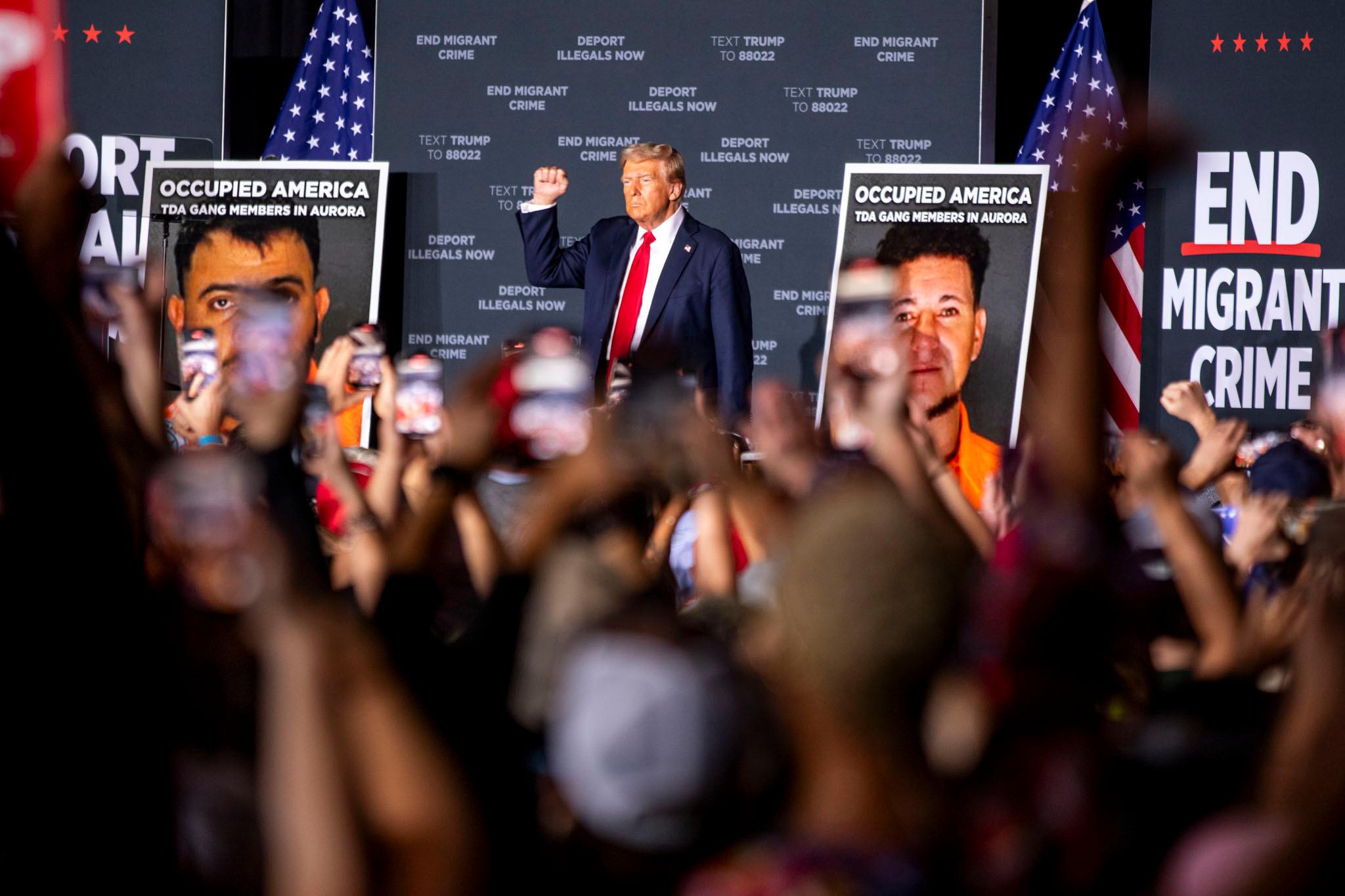

A new bill has been submitted in Colorado’s young legislative session that could help make an end run around the Electoral College.
Democratic lawmakers introduced the legislation on day one. If it passes, Colorado’s nine electoral votes would be awarded to the winner of the national popular vote — no matter who wins Colorado.
But there’s a catch.
The policy would only go into effect once the law passes in enough states to cover the majority of electoral votes. The Electoral College is comprised of 538 electors and 270 votes are needed to win the presidency. So far, 12 states and the District of Columbia have passed legislation to join the interstate compact. That accounts for 172 electoral votes, leaving the effort 98 votes short.
- Election Knowledge: How Does The Electoral College Work, And Is It Fair?
John Koza came up with the idea and chairs the National Popular Vote. He knows Colorado would only take his effort a small way toward the 270-vote threshold, but he said the state has symbolic importance. Most of the other places that have passed the law are reliably blue in presidential years. Colorado is trending that direction, but it could become the most competitive state to approve the idea.
There’s another reason, too.
“Colorado has a sentimental place in our heart because your Senate was the very first chamber to pass the bill,” he said.
The state Senate passed the change in 2006. The idea failed in the House then and has been defeated three times since. When it was up for debate in 2009, The Denver Post editorial board warned lawmakers not to pass the bill because “the Electoral College gives Colorado a voice” in presidential years. Democrats held complete control of the legislature that year and the bill still failed.
The question is: what would be different this time? Democrats again hold the legislature and the governor's office, but Colorado still clings to its status as a swing state.
Democratic bill sponsor Sen. Mike Foote said the point of the legislation is not whether it would favor a certain party, but rather the democratic principle of one person, one vote.
“It’s about time that every vote in the country counts equally,” he said. “Right now, if you live in a state that is not a battleground state, then your vote doesn’t count nearly as much.”
Republicans aren’t enthused by an idea that could be seen as a response to President Donald Trump’s 2016 election victory. Notably, the president won the electoral vote while he lost the popular vote. It was the second time in 16 years that Republicans won a presidential campaign without winning over a national majority of voters.
Foote said that doesn’t necessarily mean Republicans enjoy an advantage in the Electoral College, citing the 2004 election. That year, John Kerry came about 100,000 votes from winning Ohio and the presidency, even though he almost certainly would have lost the popular vote.
Republican state Sen. Jerry Sonnenberg is still against the bill, saying it would weaken Colorado voters.
“You drop us to from 9 [electoral] votes to 5.5 million people, all of sudden Colorado is irrelevant,” he said. “This all about making sure presidential candidates realize Colorado is important to the rest of the country.”
Sonnenberg added the Founding Fathers wrote the Electoral College into the Constitution to level the playing field between urban and rural parts of the country. Historians debate whether that was the actual intent. Some contend it was more likely a compromise between slave and free states. Unlike a popular vote, the Electoral College allowed presidential elections to contain the three-fifths clause — the compromise that let slaves be counted as part of a person when determining a state’s population.
There’s also a broader question as to whether the entire National Popular Vote effort is constitutional. The country’s guiding document says Congress has to approve all interstate compacts. In the past, courts have ruled that if a compact threatens national supremacy, it requires congressional consent.
Proponents have their own constitutional arguments at the ready. Koza has argued Article II gives states full power to decide how they elect representatives. That leeway has allowed Nebraska and Maine to award electoral delegates based on the popular vote winner in each of the state’s congressional districts.
That could mean a court fight if enough states embrace the bill.
Colorado isn’t alone in considering the idea in 2019. Koza said the legislation should be in introduced in about 30 states by the end of January.









